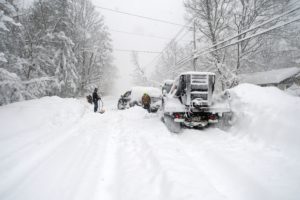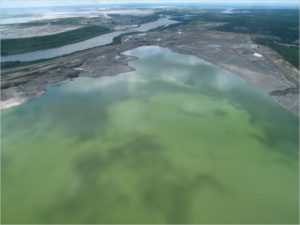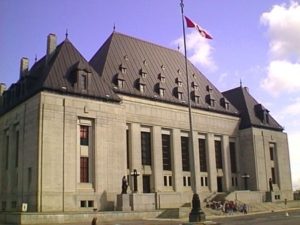Corrected 9 January 2023
Sovereignty Act applications- before the election?
The application of the Sovereignty Act before the May provincial general election has a lot of moving parts. The Act came into force on 15 December, the date of royal assent. At present Premier Smith is constructing the case along with her finance minister Travis Toews and jobs and economic development minister Brian Jean of a competent government managing finances prudently and attracting investment. In a “Special Economic Report” sent out to UCP supporters on 7 January the Premier highlights that under her leadership 41,500 full time jobs were added in December, most from the private sector. The communication reminds Albertans that they enjoy the highest wages in Canada and the lowest taxes. On the fiscal side, affordability payments and “help for vulnerable Albertans” are on the way. Without any reference to federal assistance, the UCP claims “our made-in-Alberta childcare plan has helped to reduce fees for parents of children 0 (sic) to kindergarten age by an average of half. By 2026, parents will pay an average of $10 per day.”
Does this mean a shift away from fighting Ottawa? Perhaps. But not for long.

Much of this shift in thinking is the realization that most Albertans do not want a fight with Ottawa- they have other issues to contend with. The provincial budget in February will undoubtedly launch a wave of spending announcements and possible tax reductions to foster goodwill among the electorate, particularly the undecided. However, as Professor Trevor Tombe noted in The Globe and Mail this past weekend oil at $70 U,S. per barrel will yield a more modest surplus of about $3-billion. Oil closed at about $73 U.S. this week. This is a reminder that good times can leave Alberta as quickly as bad times. If fiscal prospects dim, the anti-Ottawa rhetoric will heat up.
(un)Just Transition
While Smith is now addressing practical issues such as affordability, her base will keep pushing the anti-Ottawa agenda. In a recent communication from Project Confederation (a companion organization to the Free Alberta Strategy and the Alberta Institute) the project identified the federal “Just Transition” initiative as the “price that the federal Liberals, and by extension all Canadians, must pay in exchange for the NDP propping up their minority government.” This sets up the argument that Notley’s Alberta New Democrats subscribe to “an ideological plan with an explicitly stated goal of eliminating the oil and gas industry entirely” (emphasis added) .
Not surprisingly the Trudeau name is linked with Trudeau Senior and the highly mythologized National Energy Plan.
Instead, Ottawa seems hell-bent on hurtling down the path toward economic ruin.
Not since Pierre Trudeau’s “National Energy Program” has the federal government taken aim at the energy industry in such a blatant and damaging way.
But, while the “National Energy Program” certainly decimated the energy industry when it was implemented, the plan, or at least the intent of the plan, was actually to expand the oil and gas industry.
If the just transition strategy is announced well before the provincial election is officially called this might allow Albertans to properly digest the costs and benefits to Alberta individuals and businesses of the federal plan. If announced during the election in May, it will become a lightning rod for distrust and innuendo cast at the federal government and, by extension, the provincial NDP.
More climate disasters
What more can be said on this topic? The planet’s weather systems are becoming more variable, as recent storms in Buffalo and in California attest. That the CO2,

methane and gaseous atmospheric build-up, ocean acidification and melting glaciers can no longer be ignored by governments should be obvious. Ecological systems and species do and can adapt but the human race is running out of time to avoid catastrophic climate heating.
Investors and governments will face difficult choices. A central question for Alberta remains the longevity of oilsands production given their high emissions intensity.
Prime Minister Trudeau recently encouraged Alberta to top up the federal government’s commitment to carbon capture in response to industry demands for Canada to match the Biden administration’s higher subsidies. The province’s response to this will probably come in February’s budget. The UCP will orchestrate this announcement with Pathways Alliance with emphasis on job creation. How quickly the $16-billion in proposed investments come from the six Pathways’ participants and resulting total employment will be closely watched. It is unlikely shovels will be in the ground although storage space and pipeline transport engineering and regulatory clearance is proceeding.
With cash filled treasuries and Canadian taxpayers’ picking up half the tab so far, bitumen players do not need to rely on debt financing to move these projects ahead. How the provincial NDP responds to carbon capture and underground storage as a long-term solution to emissions reduction is unknown. This issue may may cause fissures within the NDP’s membership.
Environment replaces economy as decision driver
This theme will play out throughout 2023 as energy insecurity caused by the Russian invasion of the Ukraine is addressed in Europe. This year will see more attention by the financial industry and securities regulators on whether environmental claims made by corporations in general, and the oil and gas industry in particular, are verifiable, accurate or misleading.

Securities regulators and the accounting profession will seriously address concerns about “greenwashing.” Although much consumption of fossil fuels and its plastic relatives are made by households, corporations must continue to reconcile their usually aggressive growth plans with environmental impacts. As more environmental and indigenous claims are advanced in courts, decisions by regulators such as the Canadian Energy Regulator and the Alberta Energy Regulator will continue to be challenged. As jurisprudence evolves- climate change is recognized even by the Alberta Court of Appeal- it will become more difficult for corporations to justify multi-billion investments without assurance that these assets do not become stranded.
Impact Assessment Act (eventually) comes before Supreme Court
On the tenth of May 2022 a remarkable decision was handed down by five Alberta Court of Appeal justices in the reference case on the constitutionality of the federal Impact Assessment Act. Using a stridently political tone, four of the justices, (including the Chief Justice Catherine Fraser, a Mulroney era jurist appointment,

served a remarkable 31 years as Alberta’s Chief Justice) rendered an opinion that the federal law was unconstitutional. The appeal court ruled four to one in on constitutional questions put before the court by Kenney cabinet back in October 2019. This is a long battle and is very likely to stay unresolved in 2023.
In July the Alberta High Court’s decision was appealed by the Attorney General of Canada to the Supreme Court. Factums at the Court were filed by 21 December (case/docket number 40195) with hearings will take place on 21 and 22 March 2023. There are a large number of intervenors including provincial Attorneys General, the Business Council of Alberta, Canadian Environmental Law Association, Environmental Defence Canada inc., Canadian Taxpayers Federation and Miningwatch Canada Inc., Hydro Quebec, Advocates for the Rule of Law, Mikisew Cree First Nation, and Canadian Association of Physicians for the Environment. The proceedings will be webcast. (My thanks to Rob Reynolds Q.C. of Alberta Counsel for help on locating the files on the SCC website).

This constitutional battaille royale will not likely be resolved until after the May election. From the UCP’s and presumably the bitumen, oil, and gas industries’ perspective time is of the essence (“time is money”) to continue to make the minimum capital investments necessary to maintain production. Bitumen players are waiting for a clear alignment of their priorities with both federal and provincial governments’. A victory for the UCP in May will embolden a hard line aimed at regaining ownership and control over the pace of bitumen development in this province.
Related Articles
Issues to follow in 2023- Analysis and Opinion- Part 1